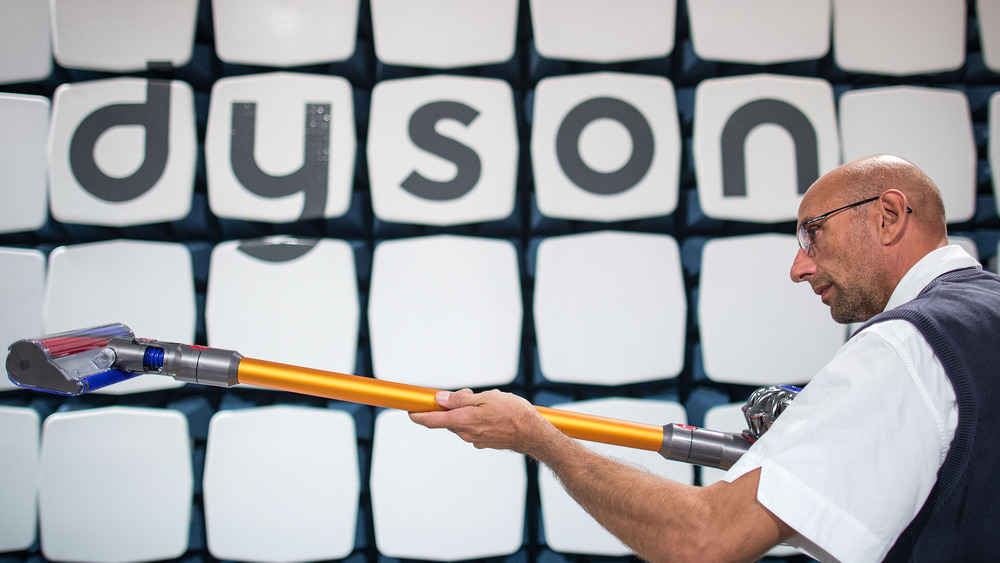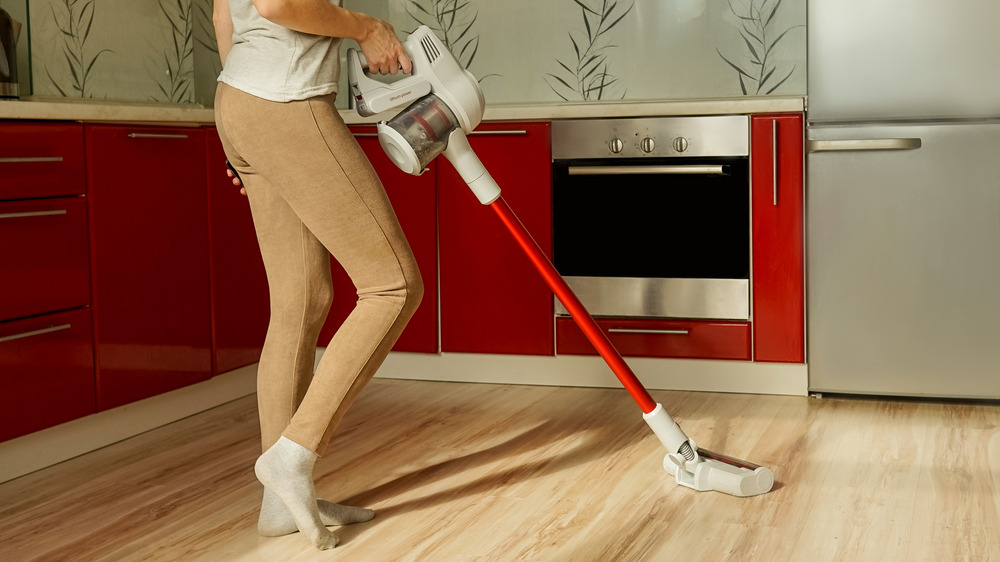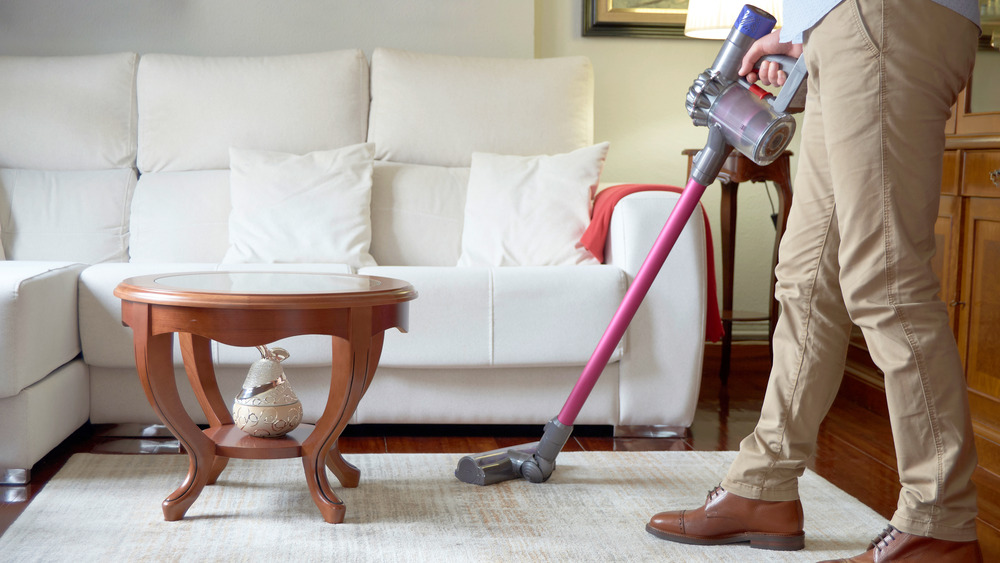Are Dyson Vacuums Really Worth The Money?
The Dyson brand has been taking over the world since it launched its first vacuum model in 1993. The product had a higher retail price than other brands at the time, but it exceeded expectations so it became a top-seller in Britain. Today, Dyson has expanded its specialty to fancy fans and hair styling tools like the coveted $550 Dyson Airwrap (via Britannica).
James Dyson founded the world-renowned brand, but he did not have an easy start like most companies. He started working on his first prototype in 1978 when he got frustrated with his store-bought vacuum cleaner. The device had a bagless design and a cyclone particle collector — an entirely new innovation for vacuum cleaners. Dyson perfected his work in the next five years and did trial and error on 5,000 more prototypes, until he made the suitable model for the debut. The attempt to sell his bagless vacuum cleaner to the manufacturers in the UK failed. However, he pursued a company in Japan where he succeeded in selling the device known as the G-Force (via Britannica).
"I was heavily in debt and didn't know where to turn to bring my machine to the market. Then I received a call from a Japanese company, Apex," Dyson told The Guardian. "It looked quite different from the final Dyson design — it was bright pink — but it won a prize and was very successful in Japan. Twenty-two months later, we launched the DC01, the first Dyson vacuum cleaner. It was soon a bestseller."
Can Dyson vacuums clean hardwood floors?
Dyson vacuums are not only famous for their bagless design, but also their cordless feature. It can be quite a task to clean while dragging the vacuum from room to room. Dyson obviously knew the struggles and revolutionized its products to make lives easier. Instead of the usual cords, new models have batteries with a plug for charging. For power, it has three settings — Eco, followed by Auto, then Boost. The first mode is designed for an extended cleaning time, as it uses less battery. The middle setting, Auto, automatically adjusts power modes when navigating the device through hardwood floors and carpets. Meanwhile, Boost, being the strongest mode, is designed for intense cleaning sessions, as it can suction everything from hair to the smallest of dirt particles (via Taste of Home).
The New York Times recommends specific models of Dyson vacuum cleaners for hardwood floors. The V7 Fluffy and V8 Absolute, both cordless, are the best for that particular type of flooring, as they both come with soft fabric rollers that can guide debris from the flat surface into the vacuum. Although other models can still do the job, as reported by Taste of Home.
How well can Dyson vacuums clean carpets?
The initial reason why most people buy vacuum cleaners is to clean their carpets. Dyson vacuums' suction is so powerful that it can completely clean any carpet of hair, grime, dirt, and even particles that are not visible to the naked eye. Not only that, but the Dyson vacuum can also clean couches, tiles, and germy rugs. You can never go wrong with the all-in-one powerful device (via The Spruce). As it is bagless, the vacuum cleaner has a cylinder instead, and it has an advanced HEPA filtration system that locks allergens inside. The Dyson ball vacuums are also certified by the Asthma and Allergy Foundation of America for being the best products for asthmatic people.
Yes, there are many vacuums available on the market today with similar functions as the Dyson cleaners. However, Dyson products really perform well and can be used on various flooring and furniture. "I usually sell from the point of view of frustration, hoping that other people feel the same way," James Dyson told Inc. "After that, I was like any other vacuum-cleaner salesman. I showed what it did, why it was different, and why it performed better." The vacuums are also easy to clean and have a five-year warranty. As expensive as they are, the cordless, bagless vacuum cleaners give consumers a bang for their buck.


